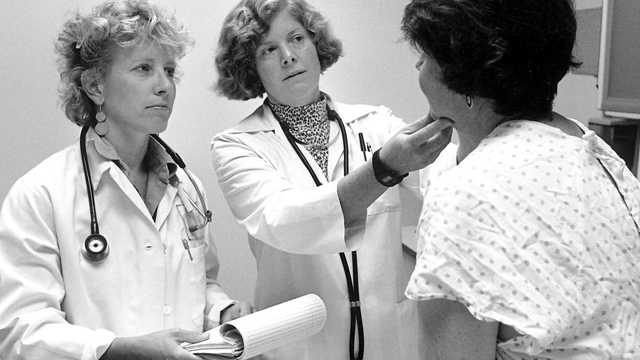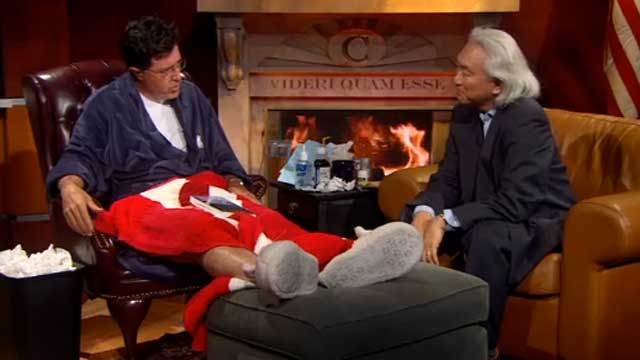Surprising Science
All Stories
British gerontologist Aubrey de Grey and nine other co-authors are urging the United States and other nations to “set up a Project Apollo-scale initiative to avert the coming ‘global aging crisis.'”
Emotions spread through a social group in ways that resemble the spread of disease. According to a study performed in Massachusetts, sadness is more contagious than happiness.
“While I do not mean to let bad parents off the hook, the fact remains that perfectly decent parents can produce toxic children.” A psychiatry professor on why parents aren’t always to blame.
Two English health scholars have written a book called ‘The Spirit Level’ which locates the cause of social ills in income inequality. The Boston Review unpacks their arguments.
“We were promised a life of leisure thanks to hard-working robots and fiendishly clever cyborgs. But the android fantasy has largely been terminated,” says The Independent.
Computing speed doubles once every year and a half, and so does the electrical efficiency of processors, from laptops to servers. The pattern makes our computing lives more convenient.
Nobel Prize-winning physicist William Phillips has used lasers to make atoms nearly as cold as they can possibly be—but he says he still hasn’t gotten them cold enough. “Every process […]
“Innovation is like a bush fire that burns brightly for a short time, then dies down before flaring up somewhere else,” says Matt Ridley, whose new book chronicles the history of prosperity.
“Stem cell ‘pharmacies’ that dispense tissue therapies could be as common as chemist shops in 20 years’ time, according to a top scientist.” The Independent envisions the future of medicine.
British philosopher A.C. Grayling thinks a new book on current neurological studies of wisdom fails to capture the true nature of knowledge because MRIs are too narrowly focused.
Two recent experiments suggest that taking a common pain reliever can ease emotional as well as physical pain. The Boston Globe reports on a surprising new find.
“The world we live in is so overrun with environmental pollutants that it is next to impossible to keep oneself truly healthy.” Sadhbh Walshe at The Guardian laments the lack of regulation.
In the history of the Universe, life—and human life in particular—has not been around for very long. But University of Michigan theoretical astrophysicist Katie Freese believes it’s possible that life […]
Government scientists have found natural HIV antibodies necessary for an AIDS vaccine, reports Scientific American, but stimulating their production in the body remains a hurdle.
“The Gulf oil spill ranks as the nation’s worst environmental disaster only if you ignore the great ongoing spill in the sky.” The L.A. Times says air pollution gets a pass, but shouldn’t.
Yesterday a British panel exonerated climate scientists at the center of last year’s Climategate scandal. The scientists had been charged with manipulating scientific evidence to support their beliefs in global […]
When we look for signals from alien life in outer space, we see nothing and all seems to be quiet. The laws of probability tell us that the Universe should […]
We often treat our future selves they way we would treat others, preferring to help later than sooner, says Scientific American. Think of your future self and you’ll save more money.
“Scientists have questioned the assumption that a lack of exercise causes fatness in children.
The study suggests that physical inactivity appears to be the result of fatness, instead of its cause.”
Harold Fromm criticizes vegans for their vanity and pretentious sense of virtue. “However delicate our moral sensibilities, it still remains that to be alive is to be a murderer,” he says.
Would it be cheaper to deal with climate change when it comes, rather than take preventative measures now? The Atlantic Wire considers the ideas of Al Gore, Paul Krugman and Ezra Klein.
Twenty-four years after the nuclear accident at Chernobyl, Scottish sheep are finally free of radioactive material brought on by heavy rain following the meltdown.
After dogs, horses may be man’s best friend, new research suggests. Based on their ability to understand subtle eye and body movements, horses can grasp human dispositions relatively well.
Cases of human irrationality are manifold, but Wired Science has found a new one: Do the outcomes of local sporting events influence voters during political elections? Yes, two studies say.
“Feeling down? Having a stimulating conversation might help.” Scientific American looks at a study suggesting that deep conversations are more satisfying that superficial ones.
I’m nearly done filming a second season of “SCI-FI Science: Physics of the Impossible” on The Science Channel. In this exciting new series, I’ve identified 12 more familiar science-fiction movie, […]
July 1st marked the 100th day since Congress passed the Affordable Care Act, a major part of the Obama administration’s health care overhaul. The same day, the administration unveiled a […]
“Scientists are trying to regulate the weather with ambitious experiments that may even tackle global warming. Is this a great step forward?” The Independent looks at the strangest of these ideas.
Prior to the famous extinction of the dinosaurs, another mass extinction paved the way for their emergence, an emergence that happened much faster than previously thought, says The Economist.






